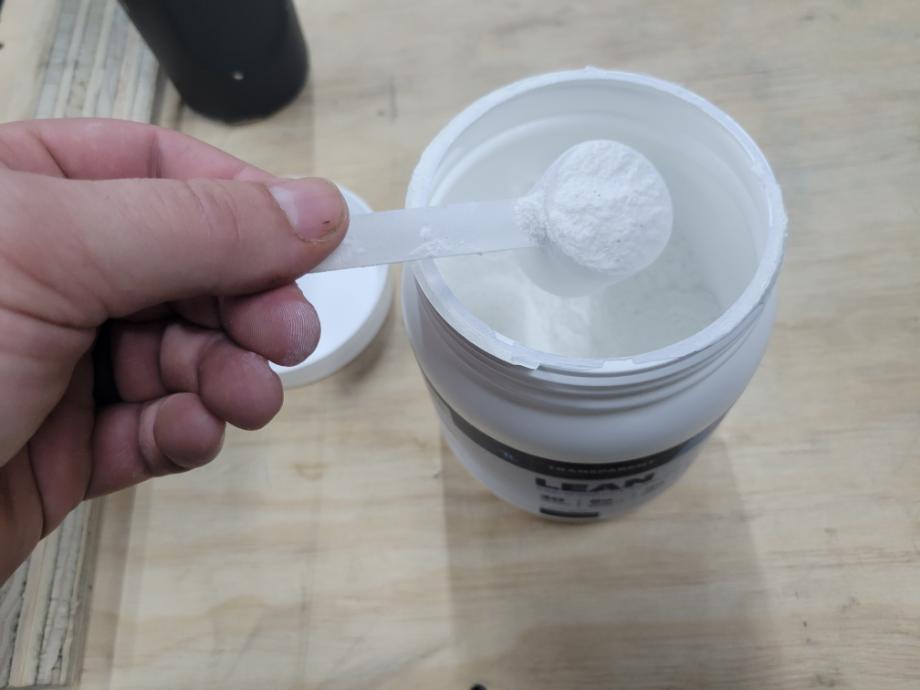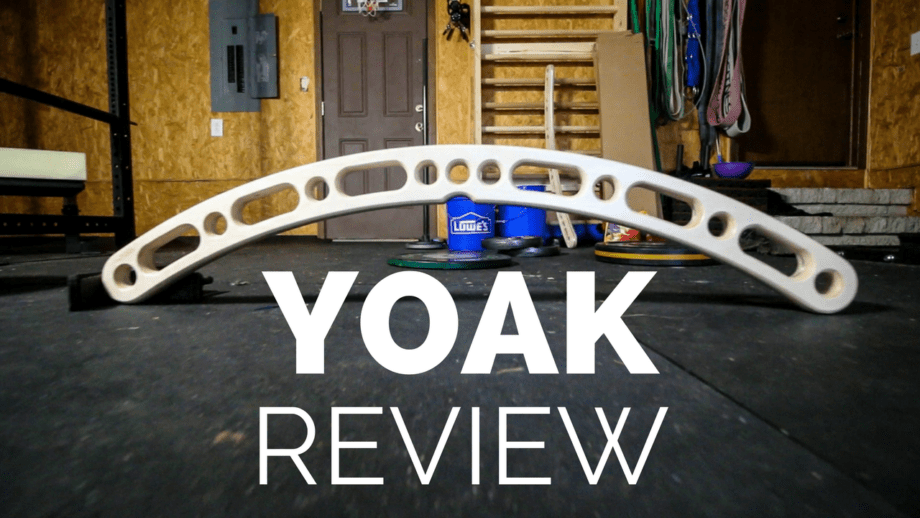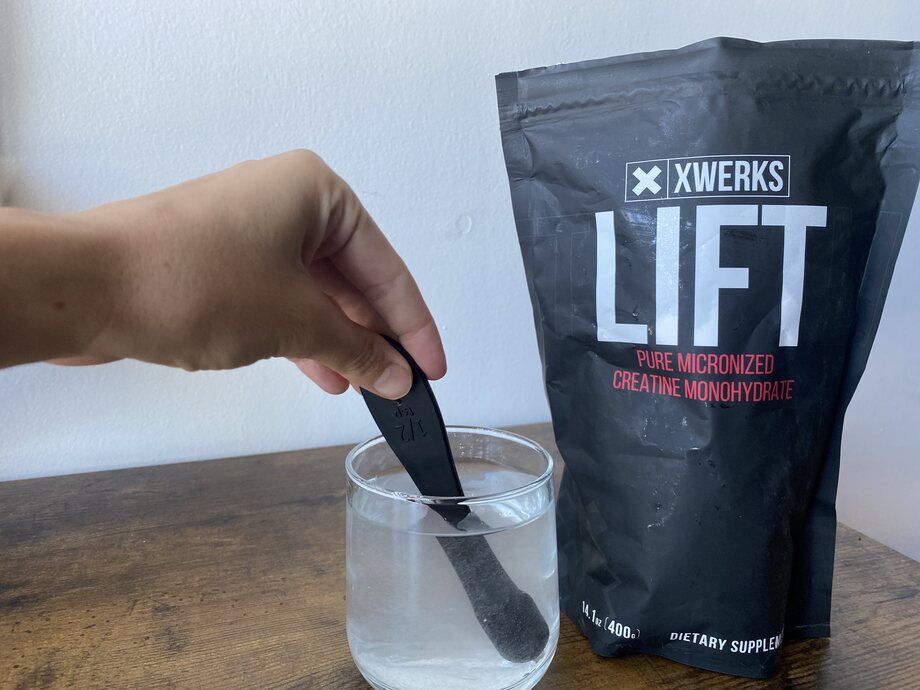Your personal trainer, workout buddy, and gym crush all take it, but is pre-workout bad for your heart? If you’re concerned about whether or not you are putting yourself at risk by joining the pre-workout club, you’re not alone.
RELATED: Best Pre-Workout of 2025
Plenty of fit folks are concerned about the potential pre-workout side effects and risks, especially the high-stim ones that contain such high doses of caffeine they have to put warnings on the label. However, is this flashy marketing to sell more supplements, or is there really cause for alarm? As a registered sports dietitian, I’m here to set the record straight.
Medical disclaimer: This article is intended for educational and informational purposes only. It is not intended as a substitute for medical advice. For health advice, contact a licensed healthcare professional.
Short Answer: Is Pre-Workout Bad For Your Heart?
Pre-workout often contains compounds that quickly and significantly influence blood pressure and heart rate. Thus, there have been some rare cases of healthy individuals experiencing cardiac events like heart palpitations and even heart attacks after taking pre-workout. That said, this isn’t grounds to put the stamp of “dangerous” on all pre-workout supplements.
If you have a heart condition or heart problems, pre-workout can absolutely be bad for the heart as it can exacerbate most heart conditions. Talk to your cardiologist or primary care provider if you have concerns about prospective supplements.
What is Pre-Workout?
A pre-workout supplement is a dietary supplement that typically comes in a multi-ingredient powder. Common ingredients include stimulants, amino acids, and nitric oxide boosters to help increase blood flow and help improve physical performance during high-intensity exercise.

RELATED: Best Pre-Workout Ingredients
When taken before exercise, many avid weightlifters swear by their ability to enjoy more muscle strength and endurance, have stronger motivation and focus during training, get a good pump, and have higher energy levels.
Let’s take a look at the more specific, common ingredients you may find in a pre-workout supplement:
- Caffeine: For those of you who can’t survive without your two to four (or more) cups of coffee throughout the workday, you are well familiar with the effects of caffeine on giving an energy boost. Caffeine does this by blocking the receptors in your brain that cause sleepiness. It has another use as well. In a 2012 study1, trained adults who consumed caffeine an hour before exercise had more motivation and increased time to failure.
- Beta-alanine: A priceless compound for powerlifters, beta-alanine may help you perform more reps2 when taken consistently, especially during workouts that require an explosive power output. Beta-alanine is also responsible for the itchiness or “tingles3” some users experience after taking a pre-workout.
- Taurine: A common ingredient in energy drinks, studies suggest taurine can lower the levels of lactate in the muscle. This can help reduce muscle soreness and delay fatigue4.
- Creatine: Possibly the most popular dietary supplement in the fitness world, creatine is a science-backed compound5 shown to help improve muscle strength and endurance and boost muscle growth.
- Nitric oxide boosters: Arginine and citrulline are just two nitric oxide boosters commonly included in a pre-workout supplement due to their ability to dilate the blood vessels to improve blood flow to the muscles. Better blood flow means more oxygen for the muscle to use during exercise, which may reduce time to fatigue6 and provide a more pronounced pump.
- Amino acids: Amino acids—particularly branched-chain and essential amino acids—may also be found in a pre-workout supplement as some research shows it can promote muscle protein synthesis7. Though many drink amino acids for hydration, there’s no research that they actually function like electrolytes to help hydration status.
Pre-Workout Dosage
The dosage of a pre-workout will vary widely depending on the brand, as nearly every pre-workout differs in terms of its scoop size, number of ingredients, and serving size. Generally speaking, as long as you are a healthy adult who takes the amount as instructed by the brand and not unnecessarily high doses, there’s a low chance of adverse effects.
RELATED: When to Take Pre-Workout
What you should be careful of, however, is the doses of caffeine in your pre-workout. The Food and Drug Administration (FDA) recommends that Americans restrict their intake to 400 mg of caffeine per day8. However, some hardcore pre-workouts may contain more than this amount. When consuming the amount of caffeine over what the FDA recommends, there is a high risk of developing cardiac arrhythmias, increased heart rate, high blood pressure, and even heart attack in extreme cases.

It’s also important to temper the doses of caffeine you get from pre-workout with the caffeine you may consume from other sources. If you get 300 mg of caffeine from your morning pre-workout and then drink energy drinks or multiple cups of coffee per day, this will make you unintentionally vulnerable to potential side effects.
Potential Side Effects of Pre-Workout
Given that pre-workout is a multi-ingredient supplement, it’s no surprise that taking a combination of compounds that all influence the body’s nervous system, blood pressure, and other systems carries a set of risks. Let’s talk about some potential adverse effects of taking a pre-workout supplement, especially for those trying one for the first time.
RELATED: Does Cardio Lower Blood Pressure?
Bloating and Weight Gain
Pre-workouts containing creatine may cause water retention, especially if you’ve never taken creatine before or haven’t taken it in a while. This is because creatine’s function includes pulling water into the muscles to exert its effects, which causes bloating and rapid, sudden weight gain9.
However, it’s a harmless effect and will pass when the body becomes accustomed to the supplement. Outside of this effect, countless studies have shown that creatine is safe for use.
GI Distress
If you are new to pre-workout, it’s common to experience stomach upset or cramps. This is especially true if the pre-workout contains artificial sweeteners like sugar alcohols, which may cause negative GI symptoms. Diarrhea has also been experienced10 by those who didn’t use enough water to dilute their pre-workout powder.
Headaches
Ingredients like citrulline and arginine can help improve the oxygen supply to the muscles by relaxing blood vessels and making them widen. However, you can see this effect in the muscles and nervous system.

RELATED: Creatine Headaches
Since the brain also receives blood flow, the actions of nitric oxide boosters can change the blood pressure in the brain, and some have reported headaches as a result11. However, headaches can also be caused by higher doses of caffeine, depending on an individual’s sensitivity.
Jitteriness and Tingling
Sipping your morning cup of coffee while you work is one thing, but taking the equivalent of multiple cups of coffee all in one place could understandably cause some jitters in even the most seasoned gym-goers. Further, pre-workout supplements containing beta-alanine can cause a tingling sensation in the skin in what some describe as “pins and needles.”
This tingling sensation can feel uncomfortable for those who aren’t expecting or have never experienced it. However, it’s harmless. Find a pre-workout without this ingredient if the tingling negatively affects your athletic performance.
RELATED: Pre-Workout Without Beta-Alanine
Should You Try Dry-Scooping Pre-Workout?
We need to talk about dry-scooping, the TikTok trend that dietitians desperately wish never saw the light of day. How does it work? Instead of mixing your pre-workout powder with water or another liquid, people on TikTok decided it was a good idea to just scoop the powder directly into your mouth.

So, should you dry scoop pre-workout? NO. Not only does dry-scooping sound aggressively unpleasant, but it opens one up to a whole other set of potential side effects including the risk of breathing in the powder, diarrhea, and caffeine overdose that can lead to heart problems.
Overall, the practice isn’t good for your overall wellness. Just mix your pre-workout with water like the manufacturer intended.
Benefits of Pre-Workout
So, what makes pre-workout as much of a routine to many weightlifters as their post-workout protein shake? Why do your personal trainer and local bodybuilder insist they can’t get through a workout without it? Let’s look at some benefits.
Boosts Energy Levels
With all of this talk of caffeine, the most obvious reason people take pre-workout is to get the energy boost they need to keep going in the gym. For those who work early in the morning or at night after a long day, sometimes a nice scoop of blue raspberry goodness gives the motivation needed to smash a workout.
Helps Improve Mental Focus
Physical performance is one thing, but let’s also talk about the nervous system. It’s not unusual for pre-workout to contain ingredients like l-theanine that potentially improve cognitive function and promote focus during workouts, especially when paired with caffeine12.
RELATED: Best Pre-Workout for Focus 2024

For those who rest for a few seconds (or minutes) too long because they are distracted by something they saw on their phone, a good song on the shuffle, or their gym crush, this focus could drastically improve exercise performance for more efficient workouts.
Supports Performance During High-Intensity Exercise
Pre-workout compounds that increase your blood flow and power output may also help boost your exercise performance. Many people who take pre-workout are already well-trained and may feel like their muscle strength is plateauing. In this case, taking a pre-workout may provide that little extra something to lift just a bit more weight or last just a few seconds longer during endurance exercise.
Is Pre-Workout Bad For Your Heart? Final Thoughts
While there are plenty of benefits of adding pre-workout to your stack, there are also plenty of potential risks. However, these risks are mainly only likely to arise if you don’t assess your tolerance to stimulants, don’t keep track of your caffeine intake, and disregard the dosages instructed by your chosen brand.
I can’t say for sure if long-term use of pre-workout causes heart disease or other heart conditions, as that type of research just isn’t available. However, if you do have preexisting heart issues, pre-workout definitely isn’t a good idea as its effect on blood pressure can worsen your condition.
Given the evidence, pre-workout is likely safe if you pay attention to your caffeine dosage and read the label.
Is Pre-Workout Bad For Your Heart? FAQs
Does pre-workout affect heart health?
For those who don’t have pre-existing heart disease, pre-workout is generally safe when taken as directed. However, it’s always a good idea to talk to your designated healthcare professional if you have concerns about how a dietary supplement will affect you.
Is pre-workout bad for you long term?
It’s difficult to say, as no solid science has explored the long-term effects of takin
Is pre-workout bad for you if you have high blood pressure?
Yes. If you have hypertension or other heart problems, taking a pre-workout is not advised since it can exacerbate your condition or negatively interact with cardiologist-prescribed medications.
These statements have not been evaluated by the Food and Drug Administration. This product is not intended to diagnose, treat, cure, or prevent any diseases.
References
- Duncan MJ, Smith M, Cook K, James RS. The acute effect of a caffeine-containing energy drink on mood state, readiness to invest effort, and resistance exercise to failure. J Strength Cond Res. 2012;26(10):2858-2865. doi:10.1519/JSC.0b013e318241e124
- Hoffman J, Ratamess NA, Ross R, et al. Beta-alanine and the hormonal response to exercise. Int J Sports Med. 2008;29(12):952-958. doi:10.1055/s-2008-1038678
- Liu Q, Sikand P, Ma C, Tang Z, Han L, Li Z, Sun S, LaMotte RH, Dong X. Mechanisms of itch evoked by β-alanine. J Neurosci. 2012 Oct 17;32(42):14532-7. doi: 10.1523/JNEUROSCI.3509-12.2012. PMID: 23077038; PMCID: PMC3491570.
- Kurtz JA, VanDusseldorp TA, Doyle JA, Otis JS. Taurine in sports and exercise. J Int Soc Sports Nutr. 2021;18(1):39. Published 2021 May 26. doi:10.1186/s12970-021-00438-0
- Wu SH, Chen KL, Hsu C, et al. Creatine Supplementation for Muscle Growth: A Scoping Review of Randomized Clinical Trials from 2012 to 2021. Nutrients. 2022;14(6):1255. Published 2022 Mar 16. doi:10.3390/nu14061255
- Kiani AK, Bonetti G, Medori MC, et al. Dietary supplements for improving nitric-oxide synthesis. J Prev Med Hyg. 2022;63(2 Suppl 3):E239-E245. Published 2022 Oct 17. doi:10.15167/2421-4248/jpmh2022.63.2S3.2766
- Fujita S, Dreyer HC, Drummond MJ, et al. Nutrient signalling in the regulation of human muscle protein synthesis. J Physiol. 2007;582(Pt 2):813-823. doi:10.1113/jphysiol.2007.134593
- FDA. Spilling the Beans: How Much Caffeine is Too Much? U.S. Food and Drug Administration. Published December 12, 2018.
- Kreider RB, Kalman DS, Antonio J, et al. International Society of Sports Nutrition position stand: safety and efficacy of creatine supplementation in exercise, sport, and medicine. J Int Soc Sports Nutr. 2017;14:18. Published 2017 Jun 13. doi:10.1186/s12970-017-0173-z
- Burgers K, Lindberg B, Bevis ZJ. Chronic Diarrhea in Adults: Evaluation and Differential Diagnosis. Am Fam Physician. 2020;101(8):472-480.
- Pradhan AA, Bertels Z, Akerman S. Targeted Nitric Oxide Synthase Inhibitors for Migraine. Neurotherapeutics. 2018;15(2):391-401. doi:10.1007/s13311-018-0614-7
- Owen GN, Parnell H, De Bruin EA, Rycroft JA. The combined effects of L-theanine and caffeine on cognitive performance and mood. Nutr Neurosci. 2008;11(4):193-198. doi:10.1179/147683008X301513






